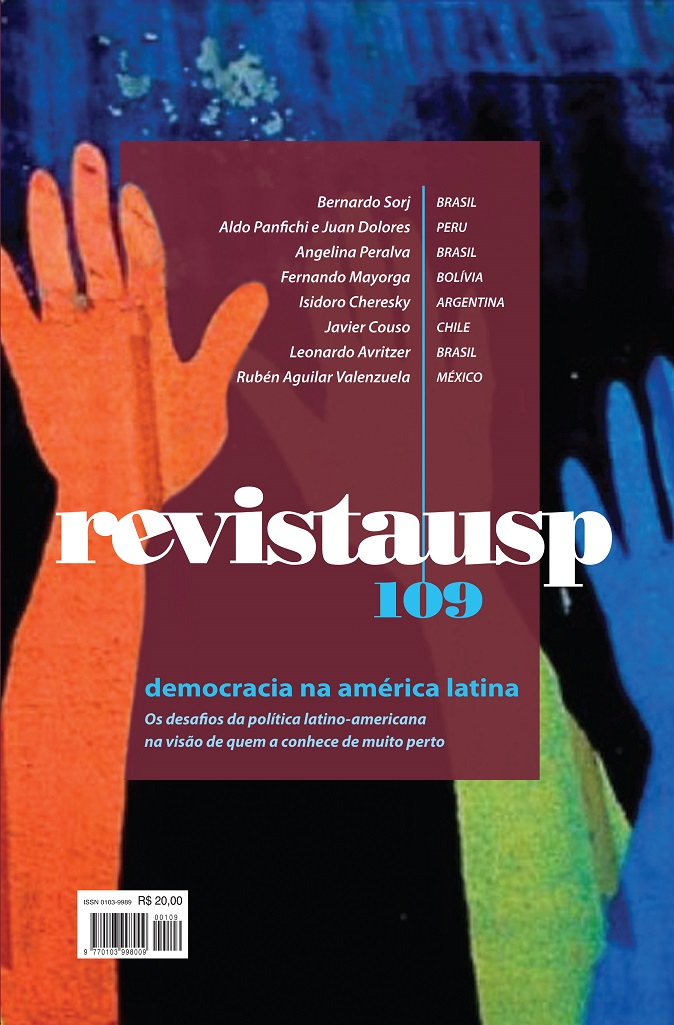A democracia no México
DOI:
https://doi.org/10.11606/issn.2316-9036.v0i109p87-94Keywords:
transition, alternation, corruption, inequality, well-beingAbstract
When the armed phase of the Mexican Revolution (1910-1920) came to an end, the winning group developed a political system which allowed for dissolving power institutionally, and which was characterized by a presidential system, a State party and corporatism. In 1977, a process of democratic transition was started; and it ended in 2000 with the victory of Vicente Fox, the opposing candidate. The 80-year-long period of an authoritarian, albeit not dictatorial, regime was ended. Today an intense electoral competitiveness is a reality. Now Mexican democracy is faced with an array of bigger challenges it needs to overcome in a short period of time to consolidate and streamline the system. Three of the biggest challenges are: rooting out corruption, reducing the levels of social inequality, and expanding spaces for citizen participationDownloads
Download data is not yet available.
Downloads
Published
2016-11-22
Issue
Section
Dossiê democracia na América Latina
License
Copyright (c) 2016 Revista USP

This work is licensed under a Creative Commons Attribution-NonCommercial-ShareAlike 4.0 International License.
|
Pertence à revista. Uma vez publicado o artigo, os direitos passam a ser da revista, sendo proibida a reprodução e a inclusão de trechos sem a permissão do editor. |
How to Cite
VALENZUELA, Rubén Aguilar. A democracia no México. Revista USP, São Paulo, Brasil, n. 109, p. 87–94, 2016. DOI: 10.11606/issn.2316-9036.v0i109p87-94. Disponível em: https://revistas.usp.br/revusp/article/view/123145.. Acesso em: 5 jan. 2026.


